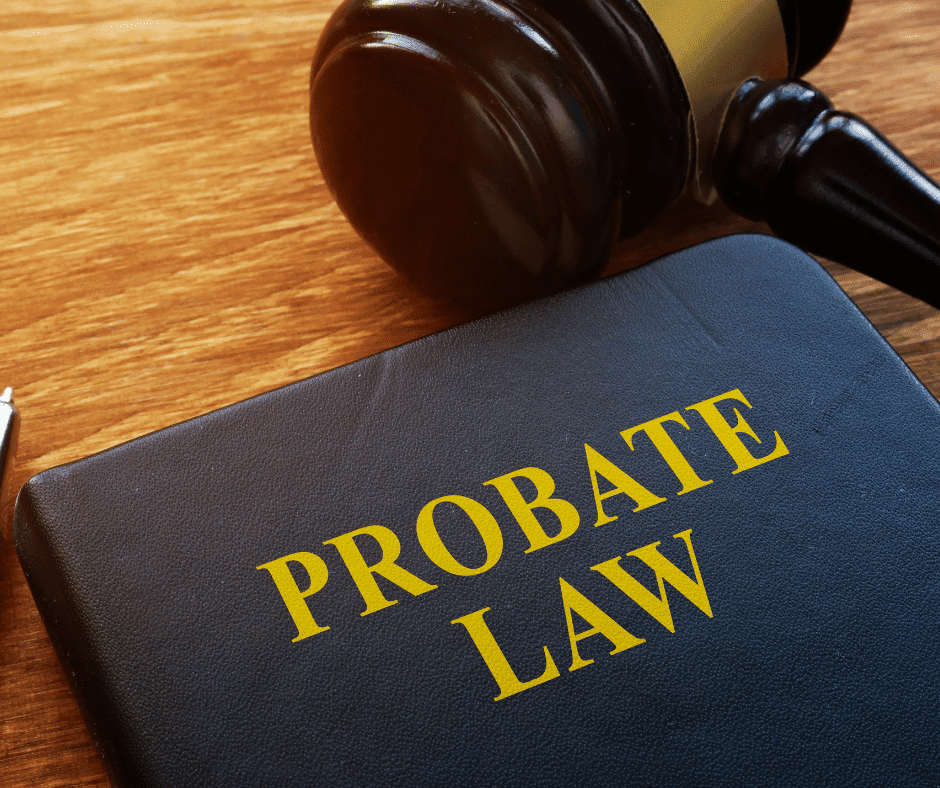Losing a loved one is always difficult. When you’re also left to manage their estate, the emotional strain often mixes with legal confusion. You might be asking yourself: “Do I need a probate lawyer if there’s a will?” It’s a question many families face during an already overwhelming time.
For example, imagine you’ve been named executor in a parent’s will. You want to do the right thing—but don’t know where to start. There’s paperwork, legal terms, banks asking for documents, and perhaps even relatives asking when they’ll receive their inheritance.
This article will guide you through everything you need to know, including:
- What probate is and when it’s required—even if there’s a valid will
- What a probate solicitor actually does and how they can help
- Whether you’re legally required to use a lawyer
- When handling probate yourself may be possible
- Situations where professional support is strongly advised
- What to expect in terms of cost and process
At DMA Law, we support families across the North East of England with probate and estate administration. Whether you’re an executor or a concerned family member, we’re here to help you move forward with clarity and confidence.
What Is Probate and When Is It Needed?
Probate is the legal process of dealing with someone’s estate after they die. It involves collecting their assets, paying off any debts, and distributing what’s left to the beneficiaries.
Even if there’s a valid will, probate is often still required. Especially when property, large bank accounts, or investments are involved. Without it, banks and institutions may not release funds, and you may not be able to sell or transfer property.
Probate gives the executor the legal authority to carry out the wishes in the will.

What Is a Grant of Probate?
A Grant of Probate is an official document issued by the Probate Registry, part of HM Courts & Tribunals Service. It confirms that:
- The will is valid
- The named executor has the authority to manage the estate
You usually need a Grant of Probate if:
- The person owned property in their sole name
- The estate includes bank accounts or investments worth more than £5,000–£10,000
- Financial institutions specifically request it before releasing funds
If the person died without a will, you’ll need a Grant of Letters of Administration instead. The process is similar, but the person applying (known as the administrator) is usually a close family member rather than a named executor.
Whether it’s probate or administration, the goal is the same: to ensure the estate is managed legally and fairly.
Can You Apply for Probate Without a Lawyer?
Yes, you can apply for probate without using a solicitor. This is known as applying “as a lay executor”. Some people choose this route to save money, especially when the estate appears simple or small.
However, managing probate on your own comes with important responsibilities—and risks.
What’s Involved in Doing It Yourself?
If you choose to apply for probate without legal help, you’ll be responsible for every part of the process, including:
- Valuing all assets — property, savings, investments, pensions, possessions, and debts
- Completing probate application forms and submitting them to HM Courts & Tribunals Service
- Dealing with HMRC for Inheritance Tax and other tax matters
- Paying any outstanding debts or liabilities
- Distributing the estate to the beneficiaries named in the will
- Keeping clear records and acting in line with your legal duties as an executor
What Are the Risks?
While it’s legally possible, probate can be time-consuming and complex—especially if:
- The estate includes property, shares, or overseas assets
- There are multiple or estranged beneficiaries
- There’s Inheritance Tax to pay
- The will is contested or unclear
- You’re unsure how to manage or divide the assets
Mistakes made during probate can lead to legal claims, financial penalties, or personal liability for the executor. In some cases, trying to save money by doing it yourself can cost the estate—and the executor—much more in the long run.
If you’re unsure, it’s always best to speak with a probate specialist first. DMA Law offers clear, local advice to help you make the right decision.

What Does a Probate Lawyer Do?
A probate lawyer (also known as a probate solicitor) provides expert legal support during the estate administration process. Their role is to guide executors or administrators through probate, ensuring that all legal and financial steps are handled correctly, efficiently, and in line with UK law.
Whether the estate is simple or complex, a solicitor can reduce the burden and help avoid costly mistakes.
Here’s what a probate solicitor typically does:
Preparing and Submitting Probate Forms
They complete the legal paperwork required to apply for probate or letters of administration, including the formal application to HM Courts & Tribunals Service.
Liaising with HMRC
Solicitors handle communication with HM Revenue & Customs to report the estate’s value, pay any Inheritance Tax, and resolve tax-related queries.
Advising on Inheritance Tax
They calculate tax liability, identify any available reliefs (such as the residence nil-rate band), and help reduce the estate’s tax burden where possible.
Handling Complex Assets
A lawyer can help manage and transfer more complicated assets, such as:
- Sole or jointly owned property
- Investment portfolios
- Business interests or shares
- Foreign assets or offshore accounts
Resolving Disputes
If disagreements arise between beneficiaries, or if someone challenges the will, a probate solicitor can advise and help mediate or defend claims—such as those made under the Inheritance (Provision for Family and Dependants) Act 1975.
Advising Beneficiaries
Solicitors also provide guidance to beneficiaries about what they’re entitled to, how long the process might take, and any tax implications of their inheritance.
Ensuring Deadlines and Legal Compliance
Executors have legal duties and deadlines to meet. A probate lawyer ensures all obligations are fulfilled correctly. This helps protect the executor from personal liability.
At DMA Law, our probate solicitors work closely with clients to make the process smoother and more manageable. We tailor our support to your needs, whether you want full estate administration or just help with specific steps.

When Should You Use a Probate Solicitor?
You don’t always need a solicitor for probate. If the estate is small, straightforward, and there’s no tax to pay or property to sell, you may feel confident handling things yourself.
However, there are many situations where using a probate solicitor is not only helpful—it’s highly advisable.
Here’s when you should strongly consider legal support:
- Property in the estate – especially if you need to sell or transfer ownership
- High-value or taxable estates – where Inheritance Tax may apply or financial reporting is complex
- Business or overseas assets – if the deceased owned a business, shares, or property abroad
- Family disputes or risk of claims – such as contested wills, estranged relatives, or inheritance disagreements
- Executors feeling overwhelmed – when you’re unsure what steps to take or worried about getting it wrong
- Multiple beneficiaries – particularly if communication is strained or unclear
- Debts or unpaid taxes – where the estate owes money or tax returns need completing
Probate can quickly become time-consuming and legally demanding. In these situations, working with a our legal team can save you stress, reduce delays, and protect you from personal risk.
Signs You Might Be Out of Your Depth
Sometimes it’s hard to know if you need help. If any of the following sound familiar, a probate lawyer can give you peace of mind:
- “I’m not sure how to start or what documents I need.”
- “I’m worried about making a mistake or missing a deadline.”
- “The paperwork is overwhelming, and I don’t want to get it wrong.”
- “I feel responsible for getting everything right, but I don’t understand the process.”
If you’re uncertain or feeling the pressure, speaking to a solicitor early can make all the difference. At DMA Law, we’re here to make the process easier, so you can focus on what matters most.
Executors’ Legal Responsibilities
If you’ve been named as an executor in someone’s will, you have a serious legal duty. You’re responsible for managing the deceased person’s estate according to the law and the wishes in the will. This includes everything from dealing with banks to filing tax returns and distributing inheritance.
Here are the key responsibilities you take on:
- Register the death and obtain official certificates
- Locate and value all assets – including property, money, investments, and possessions
- Apply for the Grant of Probate (if required)
- Settle any debts or outstanding bills
- Deal with Inheritance Tax and income tax
- Distribute the estate to the correct beneficiaries
- Keep records and communicate clearly with everyone involved
These tasks must be carried out accurately, fairly, and in line with the law.
What Happens If You Get It Wrong?
Being an executor is not just a title—it comes with personal legal liability. Mistakes can have serious consequences, such as:
- Personal financial liability if debts are missed or taxes aren’t paid correctly
- Claims from beneficiaries if assets are mismanaged or delays affect their inheritance
- Penalties from HMRC if deadlines or reporting obligations are not met
Even unintentional errors can lead to stress, legal disputes, or out-of-pocket costs for the executor.
That’s why many people turn to DMA Law for support. Our probate specialists guide executors through every step, ensuring nothing is overlooked. We help you meet your obligations, avoid costly mistakes, and give beneficiaries the clarity they deserve. With us by your side, you can carry out your duties with confidence.
Do Solicitors Charge a Lot for Probate?
One of the most common concerns for executors is cost. Many people worry that using a solicitor for probate will be expensive. The truth is, fees vary depending on the complexity of the estate and the level of support you need.
At DMA Law, we believe in being upfront and transparent about legal costs. This way, you know exactly what to expect.
Fixed Fees vs Percentage-Based Fees
Solicitors usually offer two types of pricing models:
- Fixed fee – A set price agreed in advance, often used for straightforward estates.
- Percentage-based fee – A percentage of the estate’s value, typically used for more complex or high-value cases.
We often recommend fixed fees for clarity and peace of mind. You’ll know the cost from the start, with no surprise charges.
What’s Typically Included in Probate Fees?
A probate solicitor’s fee often covers:
- Reviewing the will and advising on the executor’s duties
- Preparing and submitting the probate application
- Dealing with HMRC and managing Inheritance Tax issues
- Collecting and distributing the estate’s assets
- Communicating with beneficiaries, banks, and HM Courts & Tribunals Service
- Advising on property, trusts, debts, and tax
In many cases, these services save time, prevent delays, and avoid costly legal risks.
Who Pays for Probate Fees?
Probate fees are normally paid from the estate itself—not from your own pocket. That means as the executor, you won’t need to cover legal costs upfront (unless the estate has no funds, which is rare).
Flexible Pricing from DMA Law
At DMA Law, we offer flexible pricing options tailored to your needs. We provide clear estimates, and in many cases, we offer a free initial consultation so you can understand your options before making any decisions.
Whether you need full estate administration or just a bit of guidance, our probate team will work with you to find the most cost-effective solution.

What Happens If the Will Is Contested or Invalid?
Even if a will exists, it can still be challenged. Disputes often arise when family members feel they’ve been unfairly treated, left out, or suspect something was wrong when the will was made. These situations can delay probate and make the process emotionally and legally complex. You can read more about making a will here.
A contested will might lead to serious legal consequences—including court proceedings. In some cases, the entire will could be declared invalid.
Common Grounds for Contesting a Will
Solicitors help families navigate a range of legal claims, including:
- Inheritance Act claims – where someone believes they were financially dependent on the deceased and deserve more from the estate
- Undue influence – allegations that the will was made under pressure or manipulation
- Lack of testamentary capacity – where the person may not have had the mental capacity to make a valid will at the time
Each of these issues requires clear legal evidence, expert advice, and careful handling to protect the estate and avoid unnecessary conflict.
FAQs About Probate with a Will
Do I need a solicitor for probate if there is a will?
You do not legally need a solicitor to apply for probate if there is a will. However, many people choose to use one, especially if the estate is complex, includes property, or has potential tax or legal issues. A solicitor can help you avoid mistakes, speed up the process, and protect you from personal liability.
Can the executor apply for probate themselves?
Yes, the named executor in a will can apply for probate without a solicitor. This is known as a personal application. The executor will be responsible for valuing the estate, completing forms, dealing with tax, and distributing the assets. Legal help is recommended if you’re unsure about any part of the process. Learn what happens if an executor fails to follow the terms of a will here.
Is a probate lawyer the same as a will solicitor?
A probate lawyer and a will solicitor often overlap in role, but they focus on different stages. A will solicitor helps draft and update wills, while a probate lawyer deals with the legal process after someone dies. Many solicitors, like those at DMA Law, handle both services.
Who deals with probate when there is a will?
The executor named in the will is responsible for dealing with probate. They apply for the Grant of Probate and manage the estate. Executors can appoint a solicitor to assist with the process if needed, especially for complex estates or legal challenges.
Can the estate be administered without a solicitor?
Yes, it is possible to administer an estate without using a solicitor. This is called DIY probate. It involves completing legal forms, managing tax matters, paying debts, and distributing assets. If the estate is straightforward, this may be manageable. However, legal advice is strongly advised for larger or more complicated estates. We can help you transfer assets to your children or grandchildren.
Should You Get Help With Probate? Final Thoughts
Handling probate—even with a will—can be daunting. Whether you’re an executor or a family member, knowing when and how to get legal support can save time, money, and stress.
Key Takeaways:
- Probate is often still required, even when a valid will exists.
- Executors have legal responsibilities and can be personally liable for mistakes.
- You can apply for probate without a solicitor, but it’s not always recommended.
- A probate lawyer can handle forms, tax, disputes, and asset distribution.
- Use a solicitor if the estate includes property, tax issues, or family conflict.
- Probate costs are usually paid from the estate—not from your own pocket.
If you’re feeling overwhelmed or unsure where to start, you’re not alone. Many executors find the process more complex than expected.
Seeking legal advice early can help you avoid delays, reduce risk, and ensure the estate is managed properly.
Contact our probate team today for a no-obligation discussion. We’re here to guide you every step of the way.

